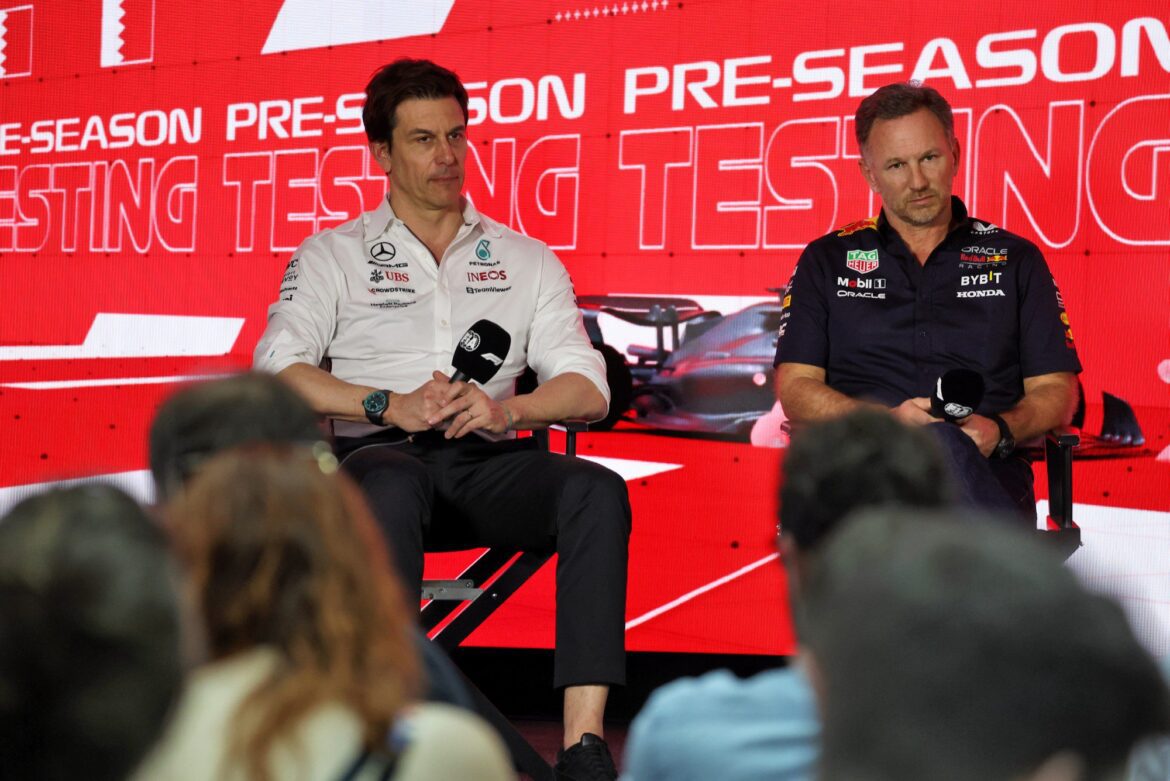Title: Red Bull Racing’s Christian Horner Pushes for Last-Minute Changes to 2026 F1 Engine Regulations
Christian Horner, the team principal of Red Bull Racing, has recently made headlines by advocating for significant adjustments to the new engine regulations set to take effect in the 2026 Formula 1 season. His stance comes in light of ongoing discussions surrounding engine performance and efficiency, particularly concerning the integration of hybrid technology. Speaking to the media during the Bahrain Grand Prix weekend, Horner emphasized the necessity for a last-minute overhaul of the upcoming power units, arguing that without these changes, drivers would be forced to engage in "lift and coast" strategies. This driving technique, which involves easing off the accelerator before braking to conserve energy, is viewed by Horner as detrimental to the sport’s competitiveness and frustrating for the drivers.
While Horner’s public statements highlight the need for adjustments to enhance the racing experience, the underlying reasons for his request are more complex. Behind the scenes, Red Bull Powertrains-Ford has reportedly encountered significant challenges in developing an efficient battery capable of delivering 50% of the engine’s power, with the remaining half coming from the internal combustion engine. Similar issues have been reported by competitors such as Ferrari, Audi, and Honda, indicating that the transition to hybrid power units is not without its hurdles.
In stark contrast, Mercedes has navigated these challenges with apparent ease. The German manufacturer has expressed optimism about the new regulations, envisioning an engine that could potentially outperform all rivals. This promising outlook for Mercedes stands in stark contrast to the concerns expressed by other teams, who fear that they may fall behind in competitiveness next season.
Given this context, it is understandable that Toto Wolff, Mercedes’ team principal, has firmly opposed any modifications to the new regulations, particularly regarding battery contributions. Wolff believes that the adjustments could disadvantage Mercedes, which has invested considerable resources into developing its power unit. He described the notion of changing the rules as "a joke," reflecting his frustration with the potential for the sport to penalize teams that have diligently prepared for the upcoming season.
The precise allocation of power between the battery and the internal combustion engine is still under debate, but one thing is clear: the decision-making process in Formula 1 tends to favor the majority. In this instance, Horner, with the backing of allies from Ferrari, Audi, and Honda, appears to have gained the upper hand, placing Wolff in a precarious position.
As discussions continue, the FIA and Formula 1 have yet to announce final decisions regarding the changes to the engine regulations for 2026. However, there is speculation that the power distribution in the new power units will lean more heavily toward the internal combustion engine than the electric component, diverging from the proposed 50/50 split that had been initially suggested.
Another concern raised during the discussions revolves around the potential for the new F1 cars to be slower on straights compared to those in Formula 2. This issue stems from the possibility that the electric motor may not provide sufficient power during high-speed sections, as seen in tracks like Monza. The implications of this could be significant for the overall performance and appeal of Formula 1 racing.
In the backdrop of these regulatory discussions, the landscape of Formula 1 is evolving rapidly. Teams are grappling with the challenges of hybrid technology while striving to maintain the thrilling spectacle that fans and drivers alike expect from the sport. The delicate balance between innovation and competition is at the forefront of these conversations, as teams work to secure their positions in a rapidly changing environment.
As the 2026 season approaches, the importance of effective communication and collaboration among teams and governing bodies cannot be overstated. The decisions made in the coming months will shape the future of Formula 1 and determine how teams adapt to the new landscape. While Horner’s push for changes may be seen as self-serving, it also reflects a broader concern for the integrity and excitement of the sport.
The ongoing developments in F1 engine regulations underscore the intricate relationship between technology and competition in motorsport. As teams strive for an edge, the pursuit of performance often leads to intense rivalries and spirited discussions about the direction of the sport. With the stakes higher than ever, the actions taken now will resonate for years to come.
In summary, Christian Horner’s recent call for adjustments to the 2026 F1 engine regulations has sparked a heated debate within the motorsport community. The challenges faced by Red Bull, alongside other teams, highlight the complexities of integrating hybrid technology into racing. Meanwhile, Mercedes stands poised to leverage its existing advantages, creating a competitive landscape that is rich with tension and anticipation. As the sport evolves, the need for collaboration and clarity in decision-making will be essential to ensure that Formula 1 remains a thrilling and competitive spectacle for fans around the globe.
With the FIA and Formula 1 facing pressure to finalize these regulations, the outcomes of these discussions will undoubtedly shape the future of the sport. Whether the proposed changes will address the concerns raised by teams or lead to unforeseen consequences remains to be seen. What is clear, however, is that the world of Formula 1 is at a crossroads, and the choices made in the coming months will have lasting implications for the teams, drivers, and fans who are passionate about this iconic motorsport.
